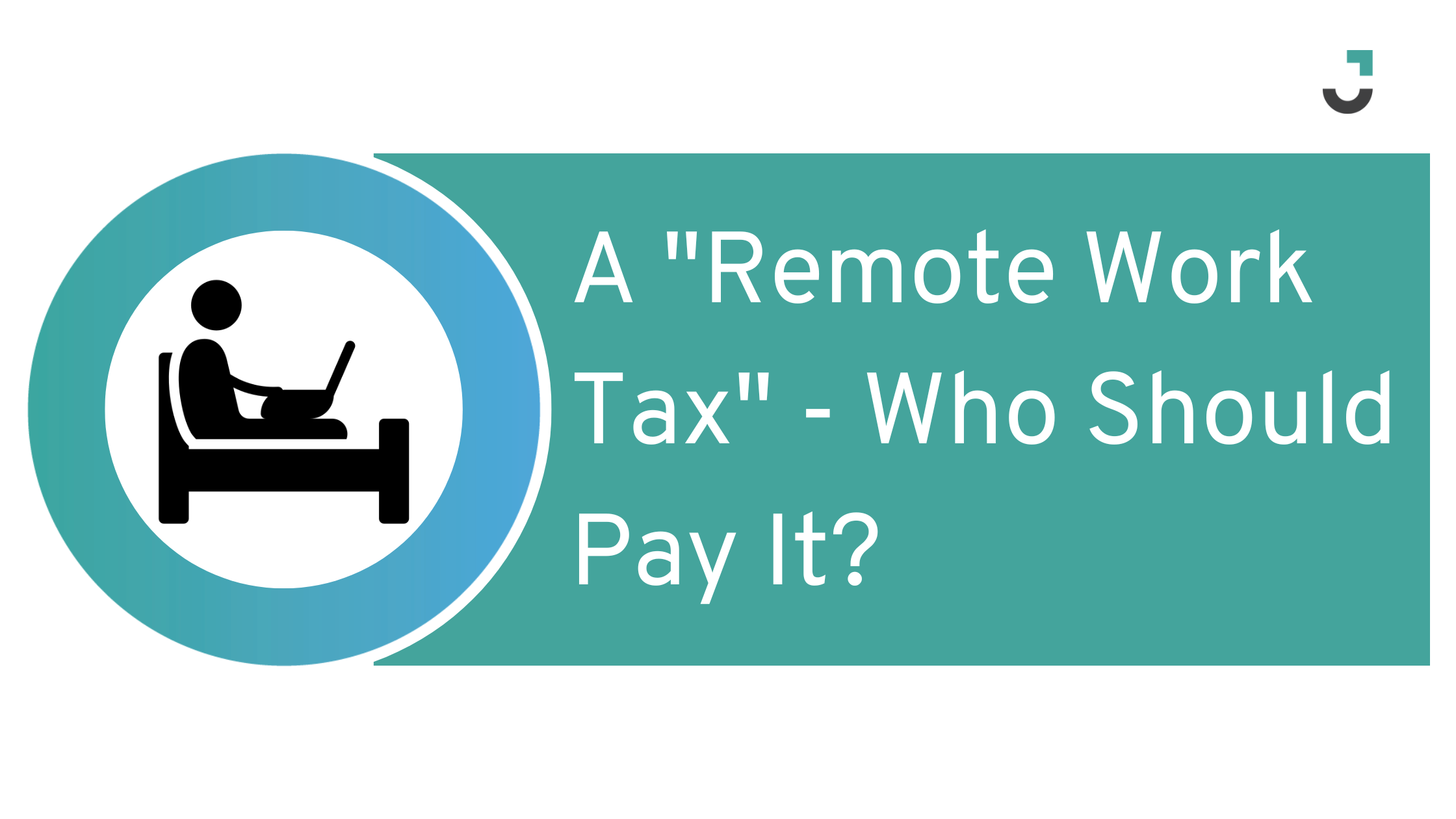Late last week, a research team at Deutsche Bank proposed a tax on remote workers to help offset the worst of the economic damage from the coronavirus pandemic, specifically the risks accrued by non-remote or essential workers. The paper read, in part:
"The sudden shift to [work from home] means that, for the first time in history, a big chunk of people have disconnected themselves from the face-to-face world yet are still leading a full economic life. That means remote workers are contributing less to the infrastructure of the economy whilst still receiving its benefits."
A report by Stanford shows that around 42% of the U.S. labor force was working remotely in June 2020. With a second wave of the virus already in full swing, it’s likely we’ll see that numbers hold steady or increase as winter drives on. The Deutsche researchers are correct when they say that remote workers are contributing less to the infrastructure of the economy. Certainly huge swaths of the economy have suffered due to the loss of that much daily commuter spend on food, travel and general commerce. However, the remote exodus is only a small fraction of the larger systemic failings that have led to the bankruptcies of over 300 small businesses even with government intervention.
Overall, the statement from Deutsche is a bit too shortsighted to be realistic, or even effective and places too much onus on the average working man to reinvigorate the economy and pay his fellow worker. The purported tax revenue gained from remote workers wouldn’t be enough to properly compensate the larger economic costs the workers in essential or non-remote jobs incur. I do think there needs to be some new tax laws that will likely be unpopular. Even if we did institute a tax on the “remote class,” the revenue would simply not be enough to mitigate the damage done by the dramatic loss in foot traffic, day-to-day revenue, commercial real estate viability and a whole host of other factors of our economy built around the way we’ve worked for the last 50+ years.
However, there are numerous industries that have flourished in the pandemic, in part due to the increase in remote workers. Those businesses, which have seen revenue and executive payouts double or triple through the pandemic bear more economic responsibility, in my view, to stimulate the economy than the average worker.
We’re unlikely to return to pre-pandemic life anytime soon (at least for the next few years). Our ability to gather in large numbers will likely be restricted in some capacity through 2022. Similarly, the travel industry, from subways to airlines to airports, is buckling under the reduction in movement brought on by the pandemic. The reduction in business travel whether it be daily commutes or for cross country meetings has left the tightly-margined travel industry flailing.
Conversely, the influx in capital, industry typical flexibility and other factors have allowed e-commerce, logistics and technology to flourish in the pandemic - with many of these companies seeing record-breaking profits even as they pulled employees back from corporate campuses. Many of these companies have announced plans to extend remote work policies through mid-2021, with the potential for them to be extended even longer.
The loss of the populations of workers at these sprawling corporate campuses have devastated the small businesses and communities that surround them. Many of these companies have outsize influence on the character, identities, and economies of the cities that house them (consider Cupertino, CA and Apple or Seattle, WA and Amazon). As such, considering a tax that contributes the revenue missing from their reduced physical footprint in these places or on the outsize profits they’ve made in the pandemic would do more to prop up the beleaguered economies of the U.S. than taxing remote workers.
This year, more than $2T in extra cash paid into the bank accounts of millions of people and businesses. This cash was not only a stimulant for these individuals and entities, banks themselves were suddenly flush with $2T in extra revenue. Trading, lending and further revenue creating investments are evident in the robust health of the stock market, even in the face of individual economic devastation and sky-high unemployment. Another example of the outsize benefit granted to a few in the face of shocking personal and human sacrifice due to COVID-19, a bump in the tax on banking profits or the extremely wealthy during the pandemic may be necessary to aggressively repair the economy and avoid the worst of another recession. I actually think Deutsche Bank made a very valuable point when it suggested such a radical idea: that we’re going to need to think in new ways to address the unique challenges and opportunities of this current social, public health and economic crisis. The individual has sacrificed so much and will continue to throughout the length of the pandemic.
Everyone in society, and that includes corporations which have been granted many of the trappings of the average citizen, must collectively accept that we need to be creative and think progressively about how we can contribute to the country’s economic success. I don’t believe the majority of the burden should be placed on the average worker, or even not so (i.e remote) average worker, who is materially benefiting the least from the pandemic.
The way things were before will never be the same and we all need to contribute towards the new normal. We may not like all the upcoming changes but we have to be open to them as we begin to truly understand the impact of COVID-19.
Original Article Found Here
Original Author: Arran Stewart, Chief Visionary Officer and Co-founder of Job.com
Job.com is a digital recruitment innovator with a unique perspective: Delivering technology and capabilities that shake up the market by bringing together a data-driven approach based in AI and machine learning with high-level, human-capital-delivered solutions, designed to efficiently attract and retain the right talent and provide consumer-level user experiences throughout the hiring process.


